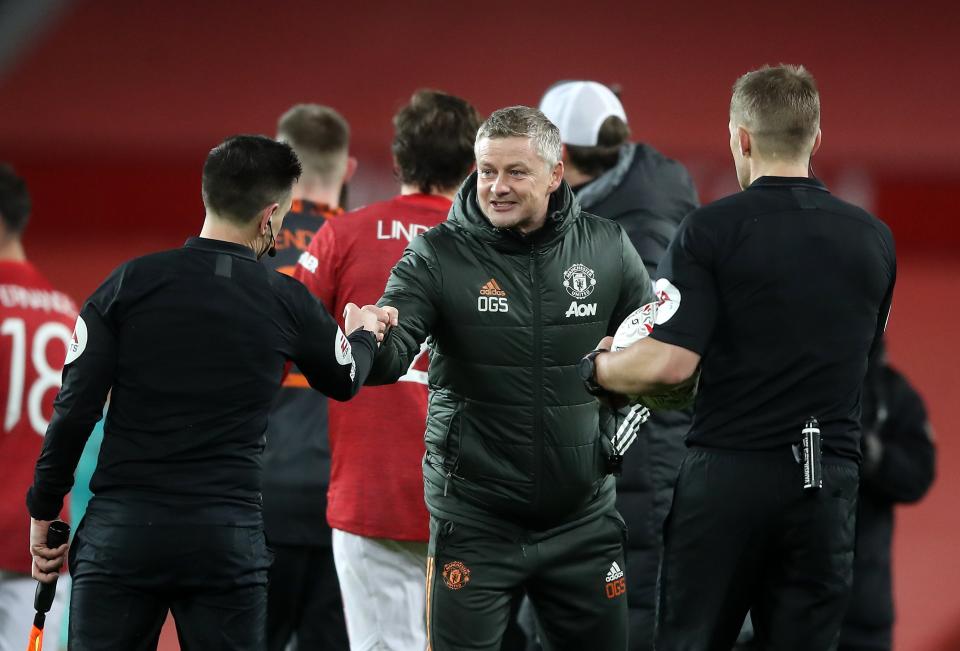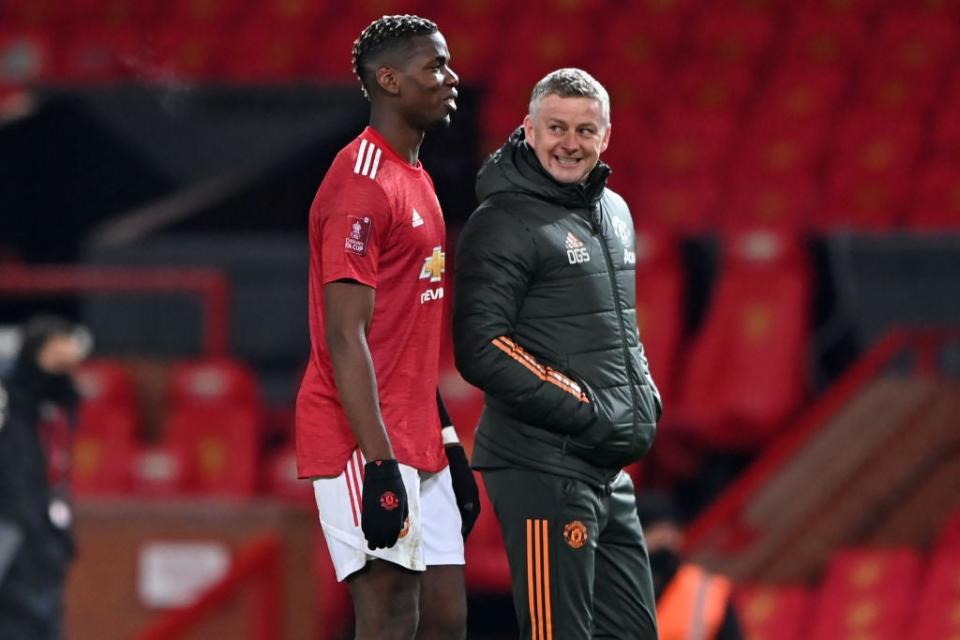How Manchester United’s Ole Gunnar Solskjaer defied ‘defensive’ critics with his game plan for Liverpool

How can two games between the same teams seven days apart feel so different?
A week ago, the most-watched Premier League match in British television's history disappointed many of its 4.5 million viewers by ending in a goalless stalemate.
But a week later, it's likely that an even bigger terrestrial audience watched Manchester United and Liverpool play out an enthralling five-goal FA Cup tie which was eventually won by Bruno Fernandes' brilliant late free-kick.
Maybe we shouldn't be so surprised. A one-off do or die cup tie with the threat of extra time and penalties will always carry a greater sense of urgency than one set of 90 minutes in a 38-game season.
But otherwise, what changed from one game to the other? Not very much.
After the 0-0 at Anfield, Ole Gunnar Solskjaer was criticised for what some perceived to be a defensive approach.
Read more: Five things we learned from United’s win
Read more: Player ratings from Old Trafford
Read more: Klopp bemoans defensive errors
"What I couldn’t believe in the second half ... the more I thought about it, there was no stage in that game where Manchester United showed any authority," Jamie Carragher said on Monday Night Football.
Watch: Ole Gunnar Solskjaer reveals how practice makes perfect for Bruno Fernandes
"I liken it to what we were talking about today – an Everton mentality, and what we mean by that is when I was a kid going to Anfield as an Everton fan, oh my god, if we got a draw, it was the biggest thing in the world."
Gary Neville was more sympathetic, comparing United's approach to settling for par on the toughest hole on a golf course.
"I understand where that team was yesterday and where Ole was in terms of his management of the game," he said. "I understood why it wasn't a bit gung ho and going for it towards the end."
But try telling that to Solskjaer himself. “We attacked every time we got the ball, maybe too much," he insisted last week.
"We kept giving it away, that was the challenge. We went forward too quickly. The thought that we weren't attacking, for me I don't understand that one. It's the quality of what we did, we need to do better."
Solskjaer's analysis was right and this Sunday, we saw what the Anfield game could have been – not because he changed his game plan, but because United executed it better.

The setup was broadly similar, with the same back four in place and only three outfield changes. Donny van de Beek, Mason Greenwood and Edinson Cavani came in for Fernandes, Fred and Anthony Martial.
Paul Pogba took Fred's place alongside Scott McTominay in midfield – breaking up the more conservative 'McFred' pairing which Solskjaer tends to favour in big games. On the face of it, that is an attacking change.
But then Pogba's creativity was required to make up for Fernandes not starting. Van de Beek is a talented player, particularly when it comes to arriving late in the box and scoring goals from attacking midfield, but he is not a creative No 10 in the same vein.
The personnel were different, but the balance of United's line-up was essentially the same. So were Solskjaer's tactics.
By now, United sitting tight, defending in a disciplined and narrow shape then threatening on the counter-attack shouldn't come as a surprise to anyone.
And yet somehow Mason Greenwood and Marcus Rashford scored United's first two goals in exactly that fashion, each of them providing the other with a through ball in behind Liverpool's high defensive live.
United were helped by the Liverpool full-backs giving up more space than they did at Anfield. Andy Robertson and Trent Alexander-Arnold were their old, adventurous selves at Old Trafford and not always for the better.
That space was there to be exploited last Sunday as well though and would have been if Rashford had done a better job of staying onside.
United's eight offsides – and Rashford's five, the most of any Premier League player this season – disrupted the rhythm of the game, making it an altogether poorer spectacle and inviting criticism of Solskjaer's approach.
But Rashford was only a matter of inches away from surviving several of those calls. Had he gone on to score from one of those opportunities, would United’s set-up have been criticised?
Watch: Cardio and upper body workout
The reaction to Sunday’s FA Cup win suggests not. United did not play in a radically different way. They sat in and kept a disciplined shape while Liverpool had possession, then looked to exploit the space left in behind at speed when they had the ball themselves.
This time, it worked. And for what it’s worth, they weren't caught offside once.
Solskjaer is a reactive coach rather than a proactive one, certainly when up against other top sides. United are happy to let the opposition play their game if they believe it will, in turn, allow them to play their own.
Even on Sunday, they finished with just 42 per cent of possession compared to Liverpool's 58 per cent. At Anfield, that split was even wider – 66 to 34 in Liverpool's favour.
There is nothing wrong with that. You can play attacking, winning football without having a lot of possession and being reactive is not the same as being defensive. It's about picking your moments, more than anything else.
If you're a little bit off-the-pace, it can result in goalless stalemates like last week's game. But do it right and you might score three, knock your greatest rivals out of the FA Cup, and nobody will tell you that you were too defensive.
Read More
Solskjaer praises United ‘mentality’ after victory over Liverpool

 Yahoo Sport
Yahoo Sport 





































